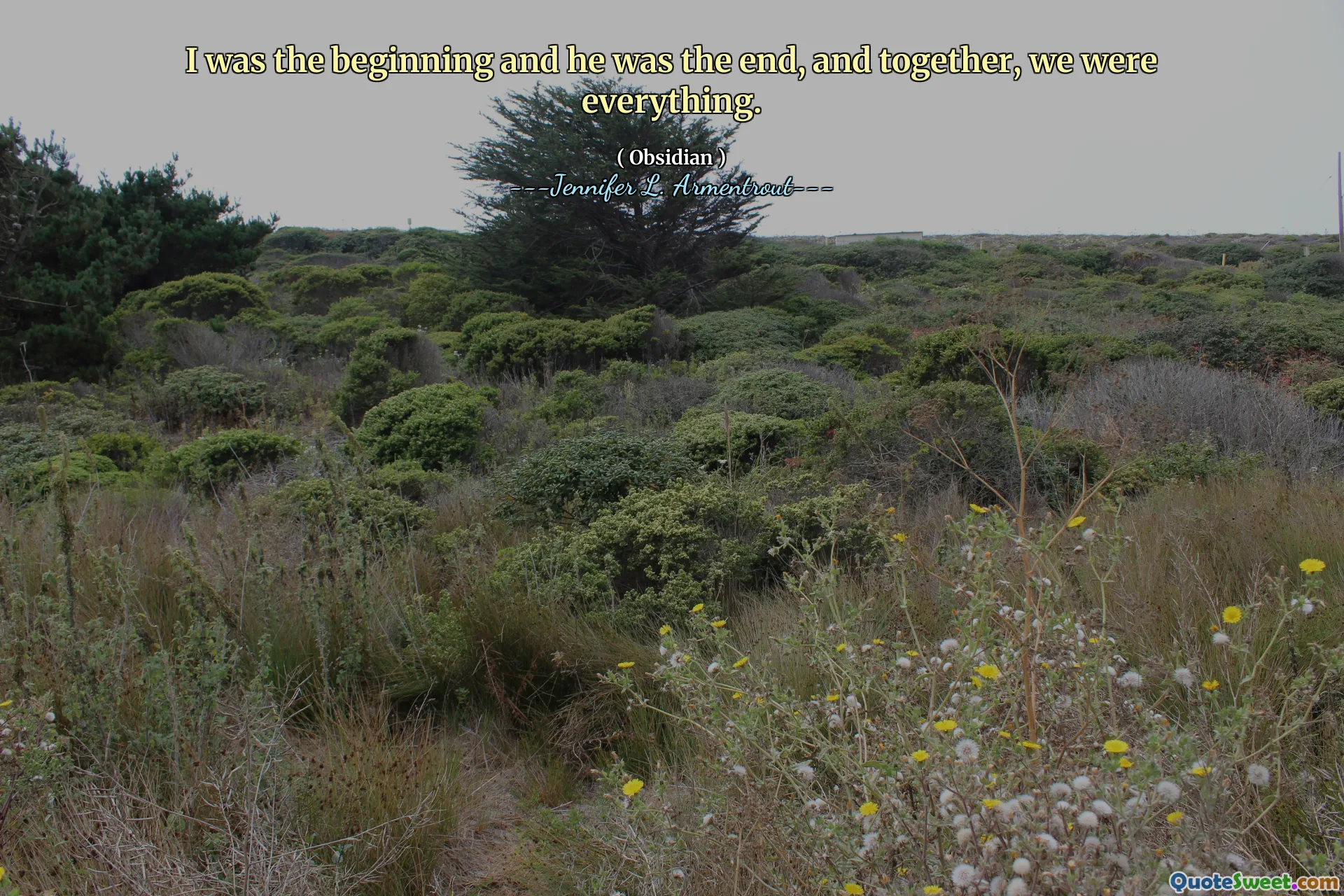
I was the beginning and he was the end, and together, we were everything.
The quote "I was the beginning and he was the end, and together, we were everything" from Jennifer L. Armentrout's book Obsidian encapsulates the profound connection between two characters. It suggests that their relationship is essential to their identities, representing a complete cycle where one character signifies new beginnings while the other represents finality. Together, they create a holistic existence filled with meaning and purpose, highlighting the depth of their bond.
This relationship reflects the complexities of love, where individuals complement each other in such a way that their union feels like everything they need. It speaks to the themes of completeness and balance, showcasing how different aspects of their personalities intertwine to create a stronger, unified whole. In essence, the quote beautifully captures the essence of their intertwined destinies and the significance of love in transforming their lives.











